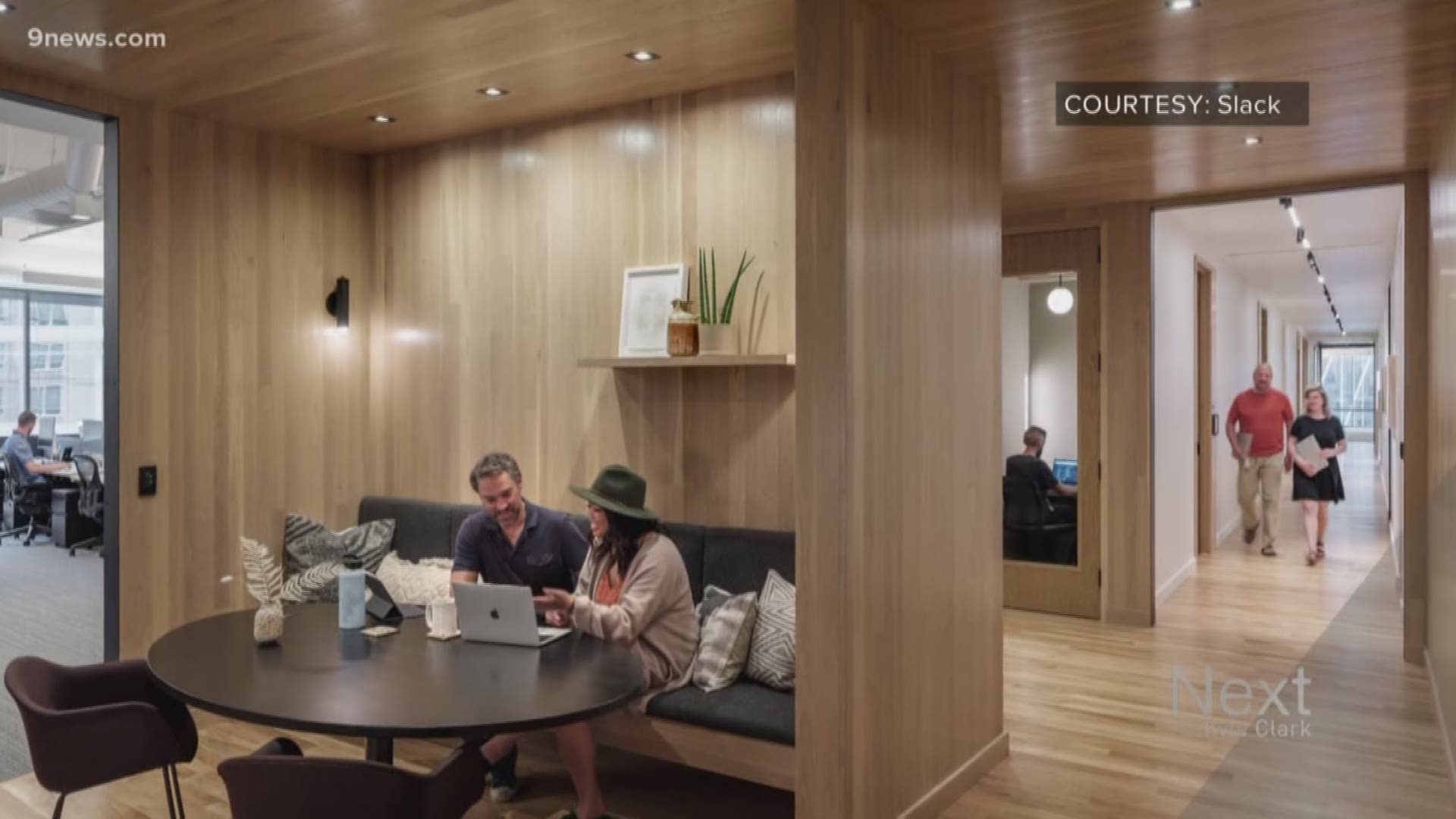DENVER — We've got some new neighbors along the Front Range, and they could be playing a role in housing costs.
Tech companies like Slack, which just opened an office in Denver, have been moving to the area. Online, the company thanked the state of Colorado writing:
"And we literally couldn't be here without the support of the State of Colorado and the Colorado Office of Economic Development and International Trade. Thanks for trusting us to move into the neighborhood."
The thanks continued with a start-up company in Boulder called Artimus Robotics, which credited a state grant with helping them launch in the middle of 2018.
"We've actually already made a few sales," said CEO Tim Morrissey. "So we've made sales to the U.S. Navy."
Morrissey said setting up shop in Boulder made sense, not only because he did his Ph.D. at CU Boulder, but because of the community.
"There are a ton of mentors and networks already set up in Boulder to get me up to speed," he said.
The Colorado Department of Labor said the state added close to 26,000 computers jobs since 2012, including programmers, systems analysts, network architects, software developers, and user support specialists.
In an e-mail, the department said, "growth in that field has been faster than other occupations in Colorado."
There's another upward trend that's caught a lot of people's attention, too: home prices.
Eric Holt, a real estate and construction management professor at the University of Denver, said there are a lot of factors to think about there like supply and demand for homes, construction costs and the kinds of jobs moving into the state.
"It's big enough that developers are looking for land to develop along those tech corridors," said Holt. He said some of those homes could cost $500,000 or more.
"We are in a supply and demand - being more demand outpacing supply," he said.
On average, tech jobs pay around $94,000, according to the Department of Labor. That's 2.2 times more than the average state median salary for all occupations, which is $42,310.
The Department of Labor also found 90 percent of the tech opportunities are concentrated in Denver, Colorado Springs and Boulder.
The City of Boulder is proud of its strong economy but realizes there needs to be a balance.
Kurt Firnhaber, the Housing and Human Services Director, said the city noticed that tech and research jobs were taking off in the city but there wasn't enough housing. Boulder also has a one percent residential growth management cap a year, with a few exceptions for affordable housing.
A similar growth cap is found in other Colorado cities as well.
Approximately five years ago, the city saw an opportunity and implemented an impact fee that collects money that goes towards affordable housing.
"There is still a need in the community for people who actually run the city - who do the daycare, the teaching, the police officers," said Firnhaber.
It's a one-time fee the developers, or in some cases, a company, would pay when a new building is being constructed.
The same goes for residential units.
For example, if someone is building an apartment building with 100 units, 25 need to be affordable, or the developers can pay the equivalent amount in cash, provide the land somewhere else for affordable units or build those affordable units at a different location.
Developers of single-family homes will also pay this fee.
"This allows growth to help pay for affordable housing," said Firnhaber.
Firnhaber said this fee can bring in anywhere from $300,000 to a million dollars depending on how much construction is going on in the city in a given year.
It makes up anywhere from 5 to 8% of the affordable housing budget, and the city currently has more than 600 affordable housing units being built in the city.
The City of Denver also has a similar program.
Denver started collecting what's called a "linkage fee" that's generated $10.6 million for affordable housing since 2017, according to Derek Woodbury with the Denver Economic Development & Opportunity department in the city.
"Having good-paying jobs for people in our neighborhoods and cities is an important component of a healthy and thriving Denver," said Denver's Chief Housing Officer, Britta Fisher.
Fisher said currently there are 1,290 affordable housing units being constructed at 17 different sites around Denver.
She also said Denver is trying to learn from other cities.
"One of my favorite peer networks is the high-cost cities housing forum," said Fisher.
Through this forum, cities like Seattle, San Francisco, Chicago, New York City, Washington D.C, and Miami stay in touch.
"We are all trying to learn from each other." said Fisher, "Any time something is working we share it. And yet at the same time the local context, whether that's state law, municipal law ends up being big factors in what is transferable and what's not."
When it comes to incentives, there is state help and grants available. The City of Denver offers some incentives for businesses in general but Boulder said it doesn't.
Last year, the state created a half-million-dollar marketing campaign to convince Californians to move here for technology jobs. Colorado was spending the money on public transit ads in Silicon Valley, asking tech workers to "pivot to Colorado."
The Denver Business Journal later reported the state didn't have a single proven hire as a result of the campaign.
SUGGESTED VIDEOS: Next with Kyle Clark

